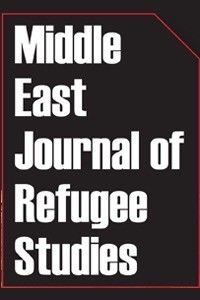Sınır-Ötesi Soydaş Azınlıkların Korunmasında Uluslararası Örgütlerin Rolü
AB’de kimi üye ülkeler için kritik önemi olan sınır-ötesindeki soydaş azınlıklar ile akraba devletler arasındaki ilişkilere yönelik, AB’nin özel bir hukuki düzenlemesi bulunmamaktadır. AB’nin aday ülkelere yönelik minimum bir azınlık hakları standartı vardır ancak bu kapsamda soydaş azınlıklar ve akraba devletler ilişkisi dikkate alınmamaktadır. Bunun tek istisnası Venedik Komisyonu’nun ve AGİT’in tavsiye niteliğindeki kararlarıdır. AB soydaş azınlıklar söz konusu olduğunda Komisyon ve Parlamento kararları ile sorunlara geçici çözümler bulmayı tercih etmekte ya da devletleri sorunlarını ikili anlaşmalar ile düzenlemeye yönlendirmektedir. Avrupa bütünleşmesi Avrupa’da sınırların önemini azaltmakta, azınlık haklarını geliştirerek ve bölgesel, serbest dolaşım gibi politikalarla sınır-ötesinde kalan soydaş azınlıkların anavatanlarıyla ilişkilerini geliştirmelerini sağlamaktadır. Soydaş azınlık politikaları, azınlık haklarının ötesinde, hukuksal temellere ve uluslararası düzenlemelere dayanan yeni bir hak kategorisi oluşturdukça daha da gelişecektir.
Anahtar Kelimeler:
Uluslararası örgütler, Avrupa Birliği, Azınlık Hakları, Sınır-ötesi, Diaspora
The Role of International Organizations in the Protection of Cross-Border Kin Minorities
The EU does not have a special regulation regarding the relations between kin minorities across the border and their kin states, which are of critical importance for some member states in the EU. The EU has a minimum minority rights standard for candidate countries, but in this context, the relationship of kin minorities and kin states is not taken into account. The only exception to this is the recommendations of the Venice Commission and the OSCE. In the case of kin minorities, the EU prefers to find temporary solutions to the problems with the decisions of the Commission and the Parliament or directs the states to regulate their problems through bilateral agreements. European integration reduces the importance of the borders in Europe, enables the cross-border kin minorities to improve their relations with their homeland by improving minority rights and by policies such as regional policy and free movement of persons. Kin minority policies will develop further as they create a new category of rights beyond minority rights, based on legal foundations and international regulations.
Keywords:
International Organizations, European Union, Minority Rights, Cross-Border, Diaspora,
___
- AGİT, The Bolzano/Bozen Recommendations on National Minorities in Inter-State Relations & Explanatory Note, OSCE High Commissioner on National Minorities, 2008.
- AKPM, “Azınlıkların Soydaş Devletler Tarafından Ayrıcalıklı Muamelesine İlişkin Karar”, 25 Haziran 2003, (çevrimiçi) http://assembly.coe.int/Main.asp?link=/Documents/AdoptedText/ta03/ERES1335.htm
- AKPM, National sovereignty and statehood in contemporary international law: the need for clarification, Resolution 1832 (2011), 4 Ekim 2011.
- AKPM, Positive experiences of autonomous regions as a source of inspiration for conflict resolution in Europe, Resolution 1334 (2003), 24 Haziran 2003.
- Avrupa Komisyonu, Commission Decision C(2013) 5969 final of 13 September 2013.
- Barten, Ulrike: Minorities, Minority Rights and Internal Self-Determination, Springer, London, 2015.
- Bauböck, Reinar: “Accommodating national minorities in Europe”, European Integration and the Nationalities Question, Routledge, 2006.
- Bidayet Mahkemesi, Judgment of the General Court of 3 February 2017 — Minority SafePack — one million signatures for diversity in Europe v Commission (Case T-646/13), OJ C 112, 14.4.2014.
- Dufoix, Stéphane: Diasporalar, Hrant Dink Vakfı Yayınları, İstanbul, 2011.
- European Commission For Democracy Through Law, Opinion On The New Constitution Of Hungary, CDL-AD (2011)016, 20 June 2011.
- European Commission For Democracy Through Law, Report On The Preferential Treatment of National Minorities By Their Kin-State, CDL-INF, 2001.
- FUEN, Charter for the Autochtonous National Minorities in Europa, Budyšin, 25 Mayıs 2006.
- FUEN, Language Diversity Campaign Brochure, (çevrimiçi) www.fuen.org
- FUEN, Linguistic Diversity And Multilingualism In Europe, (çevrimiçi) www.fuen.org
- FUEN, Living Diversity Shaping Europe, (çevrimiçi) www.fuen.org
- FUEN, Programmatic Declaration At The 2013 Fuen Congress In Brixen, (çevrimiçi) www.fuen.org
- FUEN, The Right To Education, The Right to Information and Media of One’s Own, (çevrimiçi) www.fuen.org
- FUEN, The Right To Political Participation, (çevrimiçi) www.fuen.org
- Hungarian Helsinki Committee, The case of the Hungarian Government with the Venice Commission Assessment of Government Reactions Concerning the Venice Commission’s Opinion on the New Constitution of Hungary, (çevrimiçi) http://helsinki.hu/wp-content/uploads/Assessment_of_HUN_Gov_reactions_to_Venice-Commission_opinion_201108.pdf
- Kalmár, Ferenc: “The situation and rights of traditional national minorities in Europe, Committee on Equality and Non-Discrimination”, Parliamentary Assembly, Vienna, 5 March 2014.
- Mungan, Belgin: Yaşlı Kıtanın Yeni Düzeni, Avrupa’nın Etnik Parselasyonu, YGS Yayınları, İstanbul, 1998.
- Nagle, John: “Does Having a Kin State Lessen the Likelihood of Minorities Engaging in Secessionist Mobilization? An Analysis of the Moderating Influence of Kin States”, Nationalism and Ethnic Politics, Sayı 19:3, Routledge, 2013.
- Nyyssönen, Heino/ Metsälä, Jussi: “Dual Citizenship And Voting Rights: Domestic Practices And Interstate Tensions”, ECPR General Conference University of Glasgow, 3-6 Eylül 2014, (çevrimiçi) https://ecpr.eu/Filestore/PaperProposal/66e658ed-f783-420f-bc9e-9762e9c42f5a.pdf
- Unat, Nermin A.: Bitmeyen Göç, Konuk İşçilikten Ulus-Ötesi Yurttaşlığa, İstanbul Bilgi Üniversitesi Yayınları, İstanbul, 2002.
- Waterbury, Myra A.: “National Minorities in an Era of Externalization”, Problems of Post-Communism, Routhledge, 2016.
- ISSN: 2149-4398
- Yayın Aralığı: Yılda 2 Sayı
- Başlangıç: 2016
- Yayıncı: Uluslararası Mülteci Hakları Derneği
